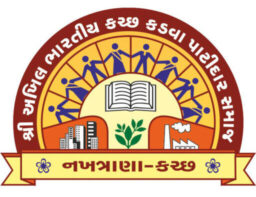
Akhil Bhartiya Kutch Kadva Patidar Samaj
A central organisation of Kutch Kadva Patidar Sanatan community

Akhil Bhartiya Kutch Kadva Patidar Samaj
A central organisation of Kutch Kadva Patidar Sanatan community
Translation Status: In Progress – To Review
119. What is an emergency?: An emergency is a situation in which great loss is likely to occur, but the possibility of total destruction is low.
120. K.K.P Symptoms of crisis in the community: The K.K.P community (also known as the Kanbi community) faced a severe religious crisis that led them to adopt customs and practices similar to those of Muslims [121: Page 342]. This suggests that their religious and social characteristics underwent significant changes. Some of the notable features of these changes were as follows:
Note: The references given below with the mentioned features are only a sample. There are many more references of such type in history.
1) True Hinduism was lost: Hinduism was forgotten for centuries and many of its festivals, except for Krishna Janmashtami, were abandoned. [88:Page 9].
2) Ban on Hindu religious stories: Listening to Hindu religious stories was punishable.
3) Deprivation of Education: The level of education was extremely low, nearly non-existent. [96:Page 6]. Children were not allowed to pursue education. [56:May-1972, Page 2 (195 of 522)] [71:Page 23]. In the year 1904, only 10 individuals within the entire community had completed their education up to the fifth standard. [86:Page 11] [6:Page 245].
4) Ali became Ishtadev: Murtaza Ali Talib was appointed as the Ishtadev of Satpanth and is also known as the Nishkalanki Narayana. See point (57) mentioned above. [141:Page 45, 53, 54, 58, 60] [52] [139:Page 463 onwards] [45:Page 81] [53:Page 40, 48].
5) Islamic Verses: Islamic verses are recited in religious ceremonies [126].
6) Praise of Muslims in religious songs: Instead of bhajans, Islamic Ginans70 are sung. In one Ginan (Gorvani’s Ginan 6th, 2nd line of Kadi 4) it is stated that “In the Atharva Veda, M Bhankhia, Sab Hindu Honshe Musalman” [58:Page 295] [88:Page 488] [126:Page 285] [146:Page 225 ]. An audio-video71 was also released, in which women can be heard singing this Ginan in a Khana.
7) Worship of the heroes of Islam: The religious texts of the Satpanthis praise Allah, Muhammad, Ali, etc. as heroes of Islam [12] [13] [14] [15] [16] [20] [58] [81] [126] [102] [ 146]. There are many such scriptures, and the original manuscripts of Satpanth are also in many places.
8) Prayer and the Name of Allah: Some people used to recite the name of Allah when waking up in the morning or going to bed at night [35:Page 148] [72:Page 36] [6:Page 505]. [112:Page 8] [6:Page 76].
9) Belief in the Quran: The true Veda in the Kaliyuga is the Quran, which is called the Atharva Veda. So they started believing in the Quran [35:Page 148] [56:Mar-1972 Page 28 (126 of 522)] [88:Page 127, 358, 364, 372].
10) Paval / Noor / Ami: Historical documents are found that indicate that Paval / Noor / Ami was made from the clay of Karbala72 in Iran, the plaster on the Imamshah’s tomb and semen [56:Tantri Lekh of Jan-1972 Edition] [89: Page 7] [81:Page 9] [88:Page 127,128] [81:Page 9] Syeds also have included their spit [114:Page 70] [6:Page 218].
11) Identification as Momna/Mumna Muslim: The community was identified as Mumna73 Muslim [35:Page 148] [121:Page 342 and 355] [41:Page 214].
12) Life style: Instead of the Hindu practice of saying “Ram Ram” when meeting someone, they adopted the lifestyle of greeting74 each other with the Muslim words “Hey Jinda.. Kayem Paya / Pirshah” [88:Page 375, 429] [148:Page 23].
13) Chanting of Pir Shah: “Pir Shah” was used as a chant instead of chanting related to the Hindu gods [88:Page 331, 375] [113:Page 5] [6:Page 62].
14) Shrines of Islam: It became common to worship at the shrines and dargahs of Muslim saints in Gamegam.
15) Adoption of Islamic customs: All the customs of Hinduism were stopped and Islamic customs were adopted. Marriages were performed by the nikah system with the recitation of kalmas75 and duas and burial76 after death.
16) Syeds were considered Harivamshi (lineage of Vishnu) Brahmins / Husaini Brahmins: In the Harivamsa77 of the Hindu Lord Vishnu from Murtaza Ali Talib to Syed Islamshah and his descendants after him, who are all Muslims, these generations infiltrated the Harivamsa [113:Page 5] [6 :Page 63] [88:Page 170] [55]. The Syeds were accepted as the true Brahmins of the Kali Yuga [86:Page 34] [6:Page 268].
17) Chaplains Syeds: The original Brahmins were treated with disrespect and even faced imprisonment. In contrast, Imamshah’s descendants regarded the Syeds as the true Brahmins and treated them as religious leaders. [111:Page 4,15 and 25] [6:Page 24, 34, 43].
18) Syed’s entham means prasad: Syed’s coming and going to Kanbi’s house increased. [56:Mar-1973, Page 5 (103 of 522)] [88:Page 499] [114:Page 65, 67] [6:Page 214 and 216] [40:Page 99] ].
19) Syed means pure: In the era of Abhadchatna, there was a belief that a Syed would have a pure standing.
20) Forcible looting in the name of religious ‘tax’: In the name of propagating religion, Pirana’s Kaka’s78 arrived from time to time in the Kampas of Kutch and Gujarat to collect religious tax money. See point (105) [88:Page 9, 31] [148:Page 25, 117, 118 and 145]. In the past, if people didn’t have enough money to donate for Dasond and Lagao to Pirana’s kaka and Mukhi, they were forced to take loans, sell or mortgage their property to the Mahajan. The community instilled fear in people that if they didn’t perform the jaman after death, their souls would not reach heaven. This fear compelled people to donate money at any cost. [113:Page 6] [6:Page 63].
21) Not allowed to go abroad to work: When a person travels abroad, it is believed that their religious purity may be compromised. Therefore, upon returning home, they must first visit the Jama’at Khana to purify themselves with Paval and pay the taxes, fines, and penalties required for leaving. Even after returning home, they are not allowed to eat or drink until they have been purified79 at the Jama’at Khana. [148:Page 21].
22) Sunnah: This information is gathered in informal discussions.[148:Page 114]. One of the famous chapters from the book involves a committee of leaders who gather to investigate the circumcision of Ramji Kaka. This chapter is known as “The Case of Khombhdi”. However, the investigation was halted at the last moment due to the intervention of the Mawalis [148:Page 119, 120 and 130]. The fear was that investigating the circumcision would perpetuate the Muslim impression of Mum and other Hindus would mock the Kanbis. [94:Page 11] No one wants to speak with certainty about the incident. For more details, please refer to Rameshbhai Vagadia’s pamphlet dated 13th Oct 2005. Additionally, such incidents have occurred in the past as well. On 18th Jan 2023, a meeting took place in Bandhay between the leaders of Satpanthi and Sanat. During the meeting, there was a discussion about circumcision, and a member confidently claimed that some people still secretly undergo circumcision today. This is also recorded in the minutes book of Bandhay.
23) Numerous Atrocities: There are many unspeakable atrocities such as economic exploitation and oppression. Not all atrocities are openly discussed, and some require wisdom and imagination to identify. [111:Page 12 and 15] [6:Page 32 and 34] [114:Page 52] [6:Page 201].
24) Other Hindu Communities Distanced Themselves: Due to their religion and community, the Kanbis were kept separate and even their drinking water was poured from a distance. [56:Feb-1972, Page 10 (68 of 522)] [59:Page 24] [113:Page 3] [6:Page 61].
25) Absolute power in the hands of kakas and chiefs: In the K.K.P community, the Kakas and Chieftains held overwhelming power that no one dared to challenge [148:Page 24].
26) Maran Tulya Durdasa: Under the influence of Pirana Satpanth, the community was degraded to the point where the poorer members of the community were suffering immensely[88:Page 20]. They were subjected to exploitation and were on the brink of starvation [148:Page 26]. In some instances, derogatory remarks were made, suggesting that Kanbis were not considered humans [130:Page 5] [6:Page 105].
27) Islam completely permeated: Islam permeated the mind-brain of the community. And most of the people accepted it with pride [88:Page 16].
28) All that was left was to change the name: Seeing all these features, you would realize that all that was left to become a Muslim was to have a Muslim name. Almost everything else was adopted by Muslims.
To summarize, the qualities associated with the community indicate that it was in a dire situation, trapped between the influence of the Kaka/Mukhi on one side and the Syed on the other, which, from the perspective of Hinduism, represented a state of imminent demise. The community had become so entangled in this conflict that it was unable to free itself from its grip, leading to its inevitable demise.

121. This pathetic situation is described in the words of Narayana Bapaappa: The words used by the great reformer of the K.K.P community Shri Narayan Ramji Limbani to describe this pathetic situation of his community speaks volumes. His words were as follows.
“Self-interested leaders wielded tyrannical power and totally crippled the Kutchi Kanbi Kom. The so-called leaders are to blame for burning the bravery and valor of the Kanbi community of Kutch and turning the entire community into a bunch of eunuchs crying in slavery” [85:Page 1].
“They cannot escape from the numerous types of harassment inflicted by some tyrannical leaders in the Kanbi community” [85:Page 2].
122. In addition to the aforementioned features, Aadhaar and Khulsa were also provided. This indicates that, from a Hindu perspective, the K.K.P community was on the verge of extinction, with no hope of survival. The very thought of how grave the situation must have been is enough to send shivers down one’s spine. |
70 Ginan = corruption of the word Sanskrit Gnana. Religious songs conveying the message of the Qur’an [43] to Atharv Ved [120:Page 43] [140] [156:Page 29] [88:Page 483]
71 Video – https://abkkpsamaj.org/go/fn71 – skip to 1:52 minutes
72 Karbala = where Ali’s son Imam Hussain died in battle. Currently in Iraq
73 Momna = Mumna
74 Greet = To welcome
75 Kalma – Here the Kalma spoken at the time of marriage [114:Page 72] [6:Page 220].
76 Burial – For more information see [114:Page 73] [6:Page 221].
77 Harivansh – A marble inscribed list of Harivansh is found in the dargah of Imamshah’s descendant Bakarshah Bawa in Pirana [27:Page 294]. A small section of the Leva Patidar community of Gujarat believes in this Bakarshah. Bakarshah’s gadipati kaka has a special place on the dais in the main events of Imamshah’s court.
78 Also called Sawari = Well [148:Page 109].
79 Chhant Nakhvi = sprinkling of water by hand on the person after uttering Dua [148:Page 22 and 23] to purify the mouth of food. For that, the mukhi has to pay the tax of sprinkling.